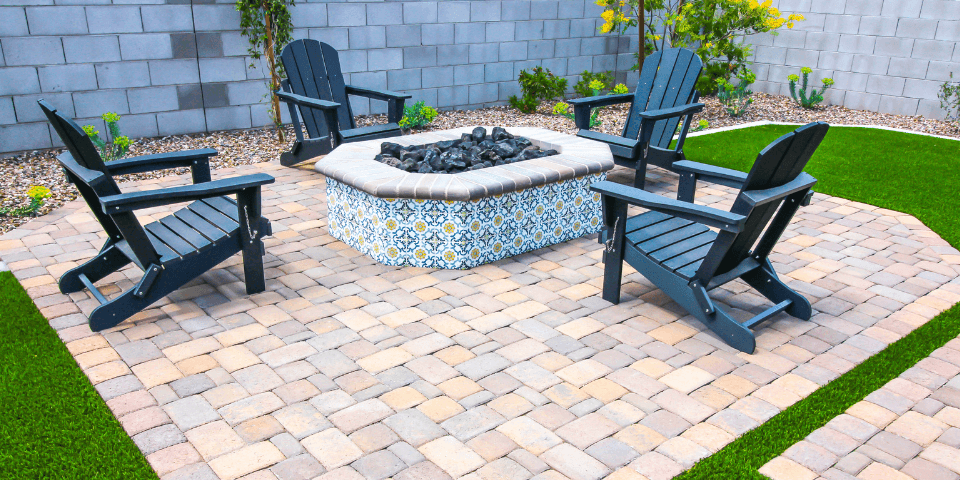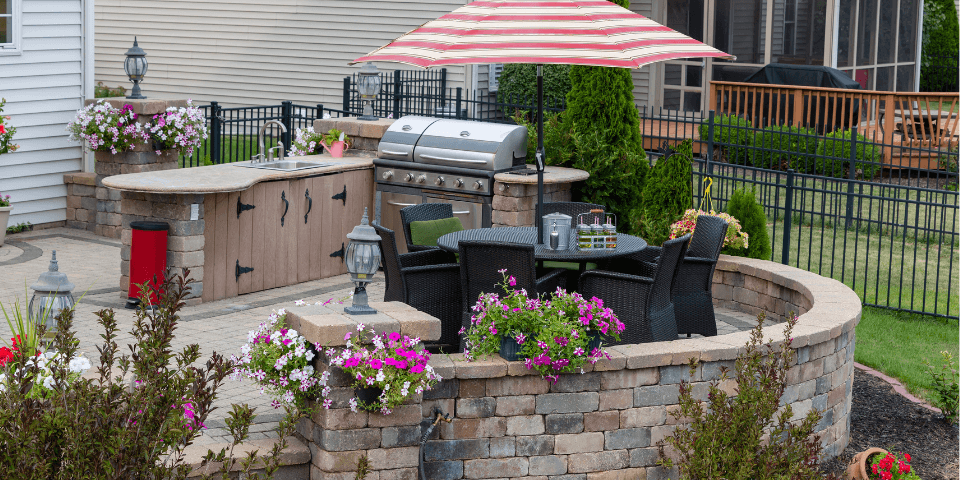
Clay Pavers in Williamsburg
Outdoor DIY hardscape projects at home can not only be a fun way to spend your time whether you’re a handyman or not, but the completed project can also add some serious value to your Virginia home. Even businesses can benefit from proper landscaping by putting their place of work on the map. You just need to get the proper supplies. Knowing what to get, however, can be tough without help, but you don’t have to approach this home improvement endeavor on your own.
At Batchelder & Collins Inc., you’ll find all the high-quality supplies you need for your next outdoor landscape design project, whether you’re a homeowner or general contractor. Whether you’re looking to spruce up your design or implement a brand-new renovation, our team can help you determine what will work best and get you the supplies you need to get the job done right. Take a closer look at our clay paver options, and discover how you can use them to polish up your landscape in Williamsburg, Virginia.
What is a Clay Paver?
Clay pavers are a kind of material used for outdoor landscaping that consists of paving brick that has been hard-fired in high-temperature kilns. When the brick is prepared using these kilns, the clay particles are fused together to enhance the strength of the material as much as possible. As a bonus, the firing process also produces a variety of natural colors and offers inherent resistance to stains and ultraviolet radiation. This is why they’re so often used in outdoor applications and lawn services.
What’s the Difference Between a Clay Paver and a Concrete Paver?
Clay pavers and concrete pavers are popular alternatives to simply pouring concrete, but there are differences you will need to keep in mind. Concrete pavers are sturdy pieces of concrete that are laid in sections rather than poured as a whole to keep it sturdier. This option is relatively affordable compared to some alternatives.
Clay pavers, on the other hand, are bricks made from heated clay. Because of the manufacturing process, the bricks tend to be more uniform, which makes them a popular choice for driveways. Their longevity is among the most sought-after benefits, as the proper care and maintenance can allow a clay-paved project to easily last decades while being exposed to the elements.
Common Types of Pavers to Use for Your Williamsburg Project
Several types of pavers are available, and the options all have their particular uses to keep in mind when finding the best fit for your project. Here are some of the most popular types of pavers to consider.
Clay Pavers
Clay pavers are the best option if you want to prioritize longevity in your project. The process of firing the clay bricks at high temperatures in a kiln leaves them incredibly durable and resistant to ultraviolet radiation from the sun and from any stains that may occur after installation. Plus, they can be created in natural colors like reddish-brown, charcoal, and even pink.
Natural Pavers
If you are interested in a natural look for your Williamsburg landscape, a natural stone paver may be preferable. Natural stones used in these pavers are simply stones taken directly from the ground in a quarry. Paving stones are sanded down first and cut into shapes before installation. The shapes can vary quite a bit, with some being designed for symmetry and others being more rock-like in appearance. Some popular options include granite, marble, limestone, and flagstone, especially for stone patios.
Concrete Pavers
Concrete pavers tend to be the most popular type of paver thanks to their relative affordability, though concrete repair can add some extra long-term costs. They can be implemented for aesthetics or function as walkways or fire pit areas. These pavers are strong and durable, though not quite to the extent of clay pavers. Interlocking concrete pavers will need to have small gaps between them to let water drain through, though concrete contractors tend to take care of that for you.
What Size Are Clay Pavers?
Clay pavers can vary in size, but the standard measurements are 292/71/52 mm. Alternatives include the slimmer 292/52/71-mm size and the standard size with the addition of spacers. Spacers can be particularly useful if you’re looking to stretch your project out across a larger surface area. Keep in mind that custom shapes may require their own unique sizes. Additionally, the way the sizes are arranged typically allows for two presentable faces if you ever need to invert them.
What is the Minimum Gap Between Pavers?
The minimum gap between pavers is an essential part of the design process. Without maintaining an effective gap, you could find yourself dealing with a variety of problems. To be safe, leave at least 3 mm of space between the pavers.
Should Pavers Be on Sand or Mortar?
Whether to use sand or mortar aggregate for your paver installation depends on the kind of pavers you choose. For clay pavers, it’s generally best to lay them on a sand bed. The design of many clay pavers allows you to fit them together with pattern bonds that don’t require mortar joints. Mortar beds are typically used with natural stone pavers rather than clay pavers.
Using Clay Pavers for Your Williamsburg Project
Quite a few types of projects can benefit from clay brick pavers, as they’re not solely good for outdoor walkways. The uses may be more diverse than you might think, so consider all the possibilities when deciding on your next project. You may even want to take advantage of clay pavers when building a new fireplace inside. Here are a few ways to use clay pavers in your projects.
Patios
Patios can do a lot to tie an outdoor space together, and clay paver patios have much to offer. Their design can be dimensionally exact, allowing for a stunning aesthetic built to last. Plus, clay paver patios can be slightly elevated to create a space separate from the rest of the yard while still seamlessly being a part of it. It’s helpful to think of a proper patio design as an outdoor living space or an outdoor kitchen, depending on the look you desire.
Retaining Walls
If you need to keep certain parts of your landscape at a different elevation from surrounding areas and hold back soil or mulch, a retaining wall might be your best bet to get the job done. Fortunately, clay pavers are useful for retaining walls, ensuring rigidity and durability that you can count on, especially when exposed to the elements.
Fountains
Adding a fountain to any outdoor space can create an incredible appearance, whether it’s in front of your business or at your home, allowing you to visit its wonders whenever you want. By using clay pavers, you can customize the design of your fountain while having confidence in the material’s durability despite being hit with water constantly.
Driveways
Clay pavers for driveways are an increasingly popular solution for homeowners looking for an alternative to the standard asphalt driveway. Given the strength of clay pavers, they can easily withstand light vehicle traffic just as well as asphalt paving, so these designs don’t have to be reserved solely for walkways.
Ready to Improve Your Williamsburg Home or Business?
When you’re ready to take your home or business to the next level of curb appeal, you’ll need the proper materials to get the job done right. That’s where the family-owned Batchelder & Collins is happy to help. Give us a call at 757-625-2506 or fill out our online contact form today to get started with your project in Williamsburg, Norfolk, Newport News, Virginia Beach, Yorktown, Chesapeake, or Richmond.



